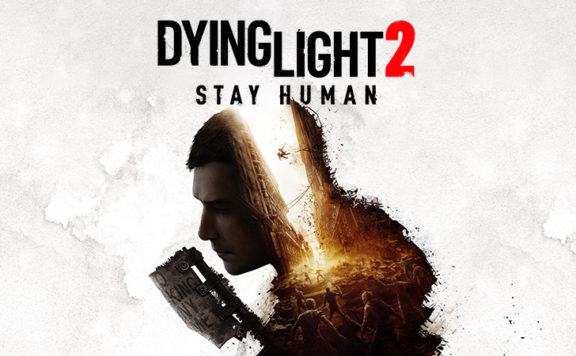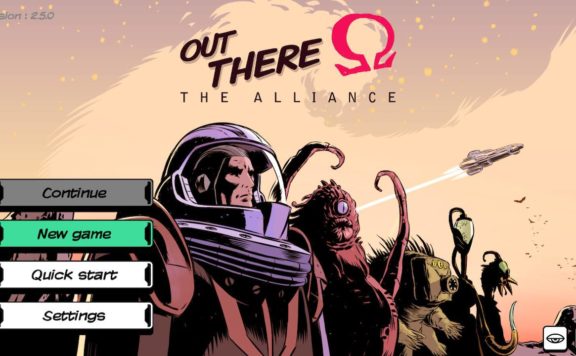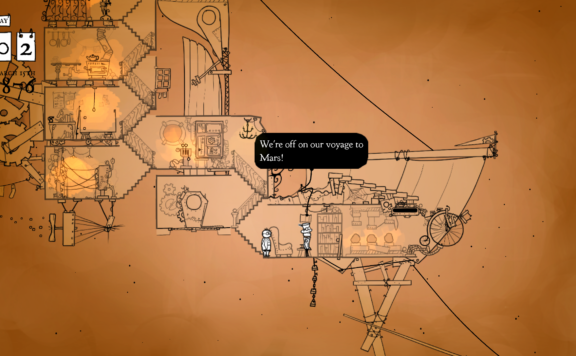The so-called “AAA” industry is a culture fueled by unending and unchecked greed. I’ve been playing video games almost my entire life and never before can I recall a time when consumers were taken advantage of, exploited, cast aside, and blatantly lied to so overtly like these last few years.
Frankly, it’s disgusting. Yes, consumer incompetence is partially to blame, but to claim that the so-called “AAA” industry didn’t want such rampant greed is simply misleading.
It’s interesting because I have been called “anti-business” many times before for arguing what I’m about to argue in this piece. But honestly, the people who make such accusations are no more influential on me than an insect I apathetically brush aside. So if you’re one of those individuals, well, you’re probably not even reading this. For the rest of you, stick around.
The inspiration for this article has been swirling in my head for some time now, but the catalyst to sit down and write it came when I read this article discussing how EA is primarily delaying the launch of loot box-delivery-system-disguised-as-a-game, Anthem, to Q4 of their fiscal quarter (2019 for the rest of us) in order to please investors, and not for the benefit of gamers (nor developers who would no doubt like more time to polish their game.)
To quote EA CEO and smug-suit-aficionado Andrew Wilson:
“We’ve chosen to launch ‘Anthem’ in Q4, and the date is really determined by portfolio-balancing considerations, not for product-readiness reasons. It doesn’t make sense to launch ‘Anthem’ right up next to [another AAA title] and when you think about ‘Anthem’ as a brand new [intellectual property], we also believe it makes sense to give [‘Anthem’] its own launch window so that we can give it the focus and attention it deserves and give it free air.”
Now, as I wipe the sick I’ve involuntarily spewed all over my iPad, let me translate that for you. This is pure disconnected corporate speak. This is EA literally admitting that the reason they’re delaying Anthem has absolutely nothing to do with quality and everything to do with “portfolio-balancing considerations.”
In other words, We want to launch the game in a timeslot that will make us all of the money for our investors, quality and completeness of the game be damned.
Even in this one disgusting statement, EA makes it laughably easy for their own hypocrisy to shine through. You and I know this is total horseshit. How? Well, look back at what they said.
“It doesn’t make sense to launch ‘Anthem’ right up next to [another AAA title] and when you think about ‘Anthem’ as a brand new [intellectual property], we also believe it makes sense to give [‘Anthem’] its own launch window so that we can give it the focus and attention it deserves and give it free air.”
If this was even remotely true (spoiler alert: it isn’t), if EA was genuinely worried about conflicting with other games, they would not have released Battlefield 1 and Titanfall 2 right next to each other.
This, then, is just one of countless examples of “AAA” culture, one that is so steeped in lies, hypocrisy, complete disregard for the consumer, and rampant greed.
Remember, we’re not their customers. Their real customers are the investors and shareholders. We, the consumers, the ones that actually buy and play their products, are cattle. We feed their real customers.
Don’t believe me? Here’s an article where Erica May, EA’s Director of Global Mobile Engagement and Acquisition (typing that job title made me sick again), details “whales,” an industry term which is used to describe high value customers but in reality, it just a degrading terminology to describe consumers. When discussing consumers,
“A high value user isn’t just a whale. There are other profiles. But people still talk about hunting whales — and even at EA lots of times I get asked, how are we going to hunt whales? And really our main focus at EA is just understanding and presenting players with the best marketing experience we can.”
Hunting. Whales.
The “AAA” culture lies to us, the consumers, while telling their real customers, the investors and shareholders, the truth. So if you want to know what these companies are really thinking, you need to ignore any and all of their PR statements and press releases. Take a look at what they said to their real customers in an investor statement.
“On November 16, 2017, Electronic Arts Inc. (“EA”) announced in a blog on its website at www.ea.com/news that it will turn off all in-game purchases for the Star Wars Battlefront II title until further notice. This change is not expected to have a material impact on EA’s fiscal year 2018 financial guidance.”
They expand on this in their FY18 earnings call,
“Net bookings for the quarter were $1.971 billion, down $99 million on the prior year, which benefited from a strong Battlefield 1 launch. Net bookings for the quarter were $29 million below our guidance, driven by lower-than-expected sales of Star Wars Battlefront II. For Q3, we had expected to sell in about 8 million units, but we fell short of that by less than 1 million units. However, this shortfall was significantly offset by an excellent performance from our live services. The impact of FX was immaterial on the quarter.”
The impact to FX was immaterial. They are literally admitting it had no effect.
No doubt, the massive loot box controversy caused a dip in Battlefront 2 sales, among other factors, but don’t worry, EA is returning microtansactions to Battlefront 2, with Blake Jorgensen of EA telling Sarah Needleman that microtransactions will return to Battlefront 2, “in the next few months.”
This is in stark contrast with the “AAA” industry constantly explaining to us, the consumers, that games are expensive to make, that they need to put in microtransactions in games and passing them off as “optional” and they’re there just to provide more “player choice.” And yes, games media are even touting this line! (I just spewed sick all over my iPad again.)
This “player choice” farce is pushed again, with Andrew Wilson saying the following regarding microtransactions,
“Going forward, we believe that live services that include optional digital monetization, when done right, provide a very important element of choice that can extend and enhance the experience in our games.”
But don’t worry. EA never meant for the experience in Battlefront 2 to be unfair.
“We never intended to build an experience that could be seen as unfair or lacking clear progression, so we removed the feature that was taking away from what fans were telling us was an otherwise great game. We are fortunate to have such passionate players that will tell us when we get it right, and when we don’t.”
Pay attention to how that’s worded. It’s almost conciliatory and flattering isn’t it? This is a perfect example of the “AAA” industry attempting to distract, flatter, and mislead you. They want to come across as your friend.
Don’t worry guys! We have your best interests at heart! You, our passionate fans! We do this for you! Didn’t you know that? This is for you! We didn’t intend for anything unfair to happen! This is all for you!
The disgusting part is, it works.
But this just isn’t enough for the “AAA” industry. No. They’re not satisfied with most of the money all the time. They want all the money all the time. To them, it’s a zero sum game. If they can’t have everything, it’s a complete and utter failure.
A fantastic recent example is Activision Blizzard’s earnings for the quarter ending on December 31, 2017. To absolutely no one’s surprise, they made a ton of money.
They made almost $5 billion in sales from microtransactions alone in 2017. Five. Billion. Dollars. Forget for one second how Activision Blizzard made that $5 billion and focus on the fact that they made 5 billion bloody dollars.
It’s not unreasonable to assume that $5 billion is an insane amount of money and almost anyone would be happy with that. But no. Not the goddamn “AAA” industry. No. For them, $5 billion is not all the money. It’s not enough.
No. The “AAA” industry wants more. They want to squeeze every last goddamn cent from you, their cattle, to fill their bottomless pockets and feed their ravenous investors.
So what did they do? Activision Blizzard filed a patent for a microtransaction system so deliberately designed to frustrate you by actively negatively affecting your gaming experience.
“In one implementation, the microtransaction engine may target particular players to make game-related purchases based on their interests. For example, the microtransaction engine may identify a junior player to match with a marquee player based on a player profile of the junior player. In a particular example, the junior player may wish to become an expert sniper in a game (e.g., as determined from the player profile). The microtransaction engine may match the junior player with a player that is a highly skilled sniper in the game. In this manner, the junior player may be encouraged to make game-related purchases such as a rifle or other item used by the marquee player.”
In not so many words, the “AAA” industry is working to provide you a worse experience to goad you into spending even more money on top of the $60 entry fee they’re charging you for the game. They are actively manipulating you to spend more money.
Of course, an Activision Publishing spox told Kotaku,
“This was an exploratory patent filed in 2015 by an R&D team working independently from our game studios. It has not been implemented in-game.”
Riiiight. Remember what I said about these companies telling us gamers one thing and telling their investors another? Yeah. Don’t let this fool you. This system, squeezing every last cent from gamers until they’re nothing but dried out husks, is exactly what these companies want. Remember, they haven’t implemented this in-game…yet.
And honestly? I don’t see this greed stopping any time soon. Let me be perfectly clear. I have no problem with money. In fact, people who know me know that the running joke amongst my friends is that I’m rich. What I take issue with is how that money is made. As I’ve always maintained, it is possible to be successful in business and not be total assholes to your consumers. This isn’t a zero-sum game. You winning in business does not mean consumers have to lose.
While I don’t think this will stop any time soon, I also believe this is unsustainable. We saw a bit of that last fall with the backlash from Battlefront 2, so much so that actual governments were getting involved.
Something will give. What that something is, I have no idea. This just isn’t healthy for the industry. This isn’t healthy for consumers. This isn’t healthy for developers. The only party this benefits, the only party, is publishers.
All I can say is constantly question and always remain skeptical. Never accept talking points spewed by these publishers and complicit games media. Knowledge is your greatest weapon against such greed. Be loud. Be vocal. Be angry. After all, it’s your money the “AAA” industry is grasping for.
Don’t hand it over so easily. Make them earn it.








Brian The Witcher
I only had to read the first paragraph to know that this writer is “hoping” to be wise, but he really just comes off as ignorant. He notes the EA “lootbox” controversy, as if it’s something that even mattered. Did people honestly have a problem with these? I didn’t hear anyone complaining about them, and I practically live in the internet. I put in at LEAST 269 hours in to BF2 and not once felt the need to purchase a lootbox. I did buy a few, just because there were skins I really wanted. But they were totally cosmetic and did not at all affect “gameplay.” I probably only spent $30-$40, which if you think about it, is the price you’d pay for one decent shirt at WalMart, so I honestly don’t see what the big deal is. I never did get the outfit I wanted, but that’s not the point. The point is that it was completely my choice, and the developers never made me feel like I had to “purchase” anything. I seriously don’t get people like this. Play the game the way the developers intended. If that means picking up a few lootboxes, what’s the big deal?!?!?! Like seriously, it’s just a few extra bucks, and if it means I’m supporting people who put in their time and tests to make a game for us, purely because they love making people happy, then I’m all for it! Ffs!
Reginald Allouchery
How exactly can you be a witcher with such low intelligence?
Gamer in his forties
I never leave a comment on any sites but after reading this article I have to say it’s one of the best written articles I have ever read. It’s completely true, I played video games since I was 12 I’m now 45 and can tell you if they release a game for a full price then that’s all you should pay for. And Brian the whitcher you are being manipulated without realising it. You paid $100 for a game when you should only pay $60 if a company wants to release new skins or weapons then you should only earn it in playing the games not manipulated into thinking it’s your decision when you pay extra for it.
Mitchell Gassner
What exactly is full price for a game? $60? Is that because that is the current price for a AAA title? You have been playing games for 30 years, so I assume you remember when the full price for a game was $50. What if full price went up to $70 next week, I guess you would be ok with that because that is the price for a full price game?
As for having to pay extra for something that you already paid full price for, what other industry doesn’t use this exact same model? When you go to McDonalds and ask for a hamburger, you don’t get to go back later and ask them to add a piece of cheese for free. If you buy a car and then later decide you want a sunroof added, you don’t get to go back to the dealer and demand they add the sunroof for free since you already paid full price for the damn car.
In all honesty, gamers are as spoiled as the companies are greedy.